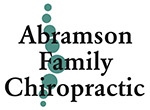Neck and Low Back Pain Are Common in Future Dentists
Among a group of 73 dental students whom researchers monitored during their time in dental school, 61.6% developed neck pain and 49.3% experienced low back pain. Interestingly, the risk for low back pain leveled off by their second year, while the risk for neck pain increased throughout their time in dental school. Past research has attributed working for prolonged periods of time in awkward postures as a significant risk factor for musculoskeletal pain in dental students and dentists. International Journal of Environmental Research and Public Health, July 2022
Influenza, Atrial Fibrillation, and Worse Hospitalization Outcomes
Using data from the National Inpatient Sample, researchers report that individuals who are hospitalized for influenza and who have a history of
atrial fibrillation have an elevated risk for acute respiratory failure, mechanical ventilation, acute kidney injury, cardiogenic shock, and in-hospital mortality. International Journal of Cardiology, Heart & Vascular, August 2022
Fish Oil and Vitamin D During Pregnancy Lowers Risk of Croup in Children
Croup is a viral respiratory condition that causes a cough, a hoarse voice, and difficulty breathing. A study that included 736 mother-child pairs
revealed an association between taking either a daily 2,800 IU vitamin D supplement or 2.4 g dose of fish oil during pregnancy and a reduced risk for croup by age three in their offspring. European Respiratory Society, September 2022
People in Their 80s Should Walk 10 Minutes Each Day
Researchers report that those in a group of 7,047 octogenarians who walked for at least ten minutes each day were 40% less likely to die in the following five years. European Society of Cardiology, August 2022
Blood Type May Influence Stroke Risk
Following a review of health histories of nearly 17,000 people, researchers report that individuals with type A blood are 16% more likely suffer a stroke before age 60 than those with other blood types. On the other hand, the risk is lowest for those with type O blood. The researchers explain that type O blood contains fewer proteins that are known to contribute to clot formation, which is necessary for a stroke to occur. Neurology, August 2022
Safe, Healthy Habits for Kids
The American Academy of Pediatrics recommends that parents help their children adopt these habits to stay both safe and healthy as they grow up: put away their toys and clean up their messes; allow parents to help them brush their teeth twice daily; wash their hands after using the bathroom and before and after they eat; help parents clear the table after meals; be kind to animals, and always ask permission before petting an unfamiliar pet; be kind to other kids; and to talk to parents or other adults they trust if they feel scared or need help. American Academy of Pediatrics, September 2022
Quote: “Don't think about your errors or failures; otherwise, you'll never do a thing.” ~ Bill Murray
This information should not be substituted for medical or chiropractic advice. Any and all health care concerns, decisions, and actions
must be done through the advice and counsel of a health care professional who is familiar with your updated medical history.
